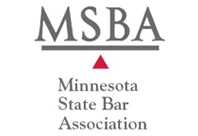Chapter 13 Repayment Plan
The debtor’s repayment plan may be filed with the petition or within 14 days after filing the petition. The time for filing the plan may not be extended with good cause shown. Your bankruptcy attorney may be required to furnish the clerk with enough copies of the plan to provide one to each creditor.
If the debtor’s income as shown on the Statement of Monthly Income and Means Test Calculation is under the state’s median income, the plan will be for a three-year duration. If the debtor’s income is above the state median, the plan will have a five-year duration.

After the §341(a) meeting of creditors, the court will schedule a confirmation hearing to confirm the plan. The confirmation hearing will be held between 20 and 45 days of the meeting of creditors, unless the court orders otherwise.
Some trustees require the debtor to start making payments under the plan 30 days after the petition is filed, even though the plan has not been confirmed. Other trustees require the debtor to bring the initial plan payment to the meeting of creditors.
Monthly Reports
If you (the debtor) are engaged in business, you may continue the business but must keep an accurate record of payments and receipts. The debtor has the responsibility of filing monthly operating reports and summaries of the business activities with the court, the trustee and taxing authorities. The report should contain sufficient information to determine the financial condition of the debtor and whether the debtor is meeting the plan payments and requirements. The debtor must also provide the trustee with a complete inventory of the property of the estate and should notify its bank to send a copy of the monthly bank statement to the trustee.
Financial Management Course
Before the plan is completed, you must attend a financial management course that has been approved by the U.S. Trustee. A certificate showing completion of the course is filed with official form 23, Debtor’s Certification of Completion of Instructional Course Concerning Personal Financial Management. The documents must be filed before the last payment required under the plan.
Discharge
After the plan has been administered, the trustee will file a final report and accounting and request a discharge. After a hearing thereon, the estate is in a position to be closed.
To learn more about Chapter 13 bankruptcy, schedule your free consultation with Minneapolis Chapter 13 bankruptcy attorney Gregory J. Wald. Call (952) 260-9737.








